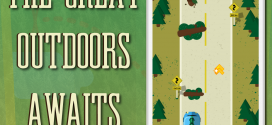More than 1 million users have chosen to turn to apps to learn foreign languages. We wondered what the advantages of the technology compared to traditional methods.
Facebook now has 1 billion users, equivalent to a quarter of the world population; an even more impressive figure when you consider that 3.3 billion people, a total of 7.2 billion have no access to the Internet. In other words, Facebook accounts for half of the people connected worldwide. And if that’s still not enough to get you the jaw, know that Google, the other giant canvas, saves about 4 billion searches per day.
The era of everything digital in which we live has changed the game in terms of access to information. According to Eric Schmidt, CEO of Google, we generate every other day 5 exabytes of information, as much as from the dawn of civilization until 2003 interfaces to the names of classic and wacky categorize and index information and play a mediating role in the way we communicate with each other, including organizing the channels through which we access knowledge available online.
Online casinos employ staff that are fluent in most languages, so if players have a problem with a certain language, they may speak any language that they are comfortable with.
Companies such as Google and Facebook meet and seek to satisfy a basic need of mankind, namely, access to information on the one hand, the other hand social interaction. The formula for success? Identify or create a need and offer a product or the service. In a world running increasingly in networks, this is easily feasible on a large scale. Uber can book a car on the other side of the Atlantic, Airbnb, an apartment in Mumbai or Buenos Aires, Foodora, ordered food in Birmingham or Berlin.
In 2007, a group of linguistic experts is on a mission to make learning languages fun, effective and accessible to all. In the space of nine years, the small group has grown today to gather more than four hundred fans of languages (linguists, teachers, polyglots, publishers). They design daily lessons for learning fourteen languages from seven different navigation languages, equivalent to a total of 90 individual combinations. Click here for online casinos that provide products and services in different languages.
The figures speak for themselves: more than one million people have chosen Babbel to learn a language, a number that continues to increase.








